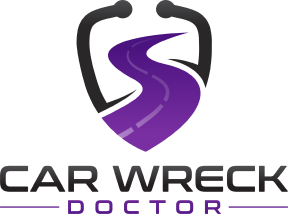On average, there are more than 6 million car accidents on the roads of the United States every year.
Out of those 6 million accidents, there are around there are around 3 million accident victims.
Of those 3 million injuries, two million of them are permanent.
If you don't think those numbers are high, more than 25% of all drivers will be involved in motor vehicle accidents over a five-year period.
That means that over the next five years, you have a 1 in 4 chance of being involved in a motor vehicle accident.
Pretty scary.
The odds of you suffering from some type of injury in a car wreck are just as high.
Luckily, some injuries will resolve themselves within a few days without the need for medical treatment.
Other, more serious injuries might become permanent and even result in a physical disability.
The type and severity of the automobile accident depends on a variety of factors, including:
- The use of seatbelts
- The area of the car that was hit in the crash.
- How was the person sitting in the seat, straight or at an angle?
- Was it a low-speed collision or a high-speed crash?
- Did the airbags deploy?
All of those factors will determine whether you can walk away from the accident or need an ambulance ride to the hospital.
In the article below, we will talk about the most common types of injuries that people sustain in car accidents.
Want more information on what a car accident doctor can do for you? Read our blog post: 10 Questions You Should Ask a Car Accident Injury Doctor.
Table Of Contents
- Traumatic Brain Injuries and Head Injuries
- Spine Neck and Back Injuries
- Broken Bones
- Psychological Injuries
- Internal Injuries
- Chest Injuries
- Arm and Leg Injuries
- Sometimes Injuries Aren't Apparent
Traumatic Brain Injuries and Head Injuries
Head injuries and traumatic brain injuries are frequently seen after car accidents.
These injuries are usually caused by your head hitting the steering wheel, the windshield, or a side window.
TBIs occur when brain function is disrupted by a traumatic event and can range from mild to very severe.
Mild TBIs are a type of head injury that can manifest themselves in the form of a concussion that can heal itself in a few weeks.
More severe head injuries may result in loss of consciousness, brain damage, long-term and permanent cognitive impairment.
Car accidents can also cause skull fractures, facial injuries, lacerations, and bruises, potentially causing chronic pain or permanent, long-lasting damage.
Spine, Back, And Neck Injuries
Sustaining a whiplash injury is very common when you're involved in a vehicle crash.
The sudden jolt of your car that occurs during an accident moves your head and neck outside of its normal range of motion, straining the ligaments and tendons and causing neck pain and soft tissue injuries.
Whiplash is a soft tissue injury that can be difficult to diagnose, so consult a doctor or chiropractor after your accident to rule it out.
Serious spinal cord injuries that can result in paralysis or death can also occur in auto accidents but are far less common.
Collision victims should immediately visit a chiropractor and undergo a complete examination due to the serious nature and potential long-term consequences of any injuries to the spinal column, neck, or back.
Broken Bones
Broken bones are due primarily to the impacts that occur during a motor vehicle collision.
Wrists, arms, ankles, legs, and ribs are all commonly broken during the impact of a car accident.
Some breaks can be treated with a cast and won't result in any long-term damage.
More serious breaks will cause severe pain, require surge, and may never return to normal.
If your broken bone requires surgery, your orthopedic injury will have to be treated by a specialist to determine if you should expect any long-term disability.
Psychological Injuries
Psychological injuries can often be the most damaging of all, even though there are no physical symptoms.
The most common psychological injury is PTSD, which can manifest itself after very severe motor vehicle crashes.
Studies done by the National Center for PTSD have shown that about 9% of car accident survivors will develop PTSD as a result of the crash.
Other psychological disorders like depression, anxiety, and emotional distress may also result from physical injuries that limit your daily functioning.
Internal Injuries
When your body is forced into another object, or it's hit by flying debris, internal organ injuries can occur.
If you sustain any internal injuries that result in internal bleeding, you will need emergency medical care.
Chest Injuries
A Chest injury is also a very common injury after a car accident.
Chest injuries will typically take the form of contusions or bruises but can be much more severe, leading to broken ribs or internal injuries.
Drivers often experience chest injuries due to contact with the steering wheel.
Even if you don't hit the steering wheel, your body will still experience a high level of force against the seat belt, which can cause severe injury.
Arm And Leg Injuries
The same force that causes all the other injuries can also cause injuries to your arms and legs.
If you suffer a side impact, your arms and legs can be jolted against the door.
If you're a passenger in the car, your legs usually have very little room for movement, causing your knees to hit the dashboard or the seat in front of you.
Depending on the nature of the accident, injuries to your arms and legs could just be bumps and bruises, but they could also be compound fractures.

Sometimes Injuries Aren't Apparent
Just because you feel fine immediately following an accident doesn't mean you haven't sustained any injuries.
Depending on the type and nature of the injury, it could take hours, days, weeks, or even months for symptoms to start appearing.
If you're ever in a car accident, it's best to seek medical treatment even if you don't think you need it.
A trip to the emergency room or even to a local chiropractor to diagnose any injuries you might have will give you peace of mind.
Schedule a Free Car Accident Consultation
When you contact Car Wreck Doctor, we will also provide you with a referral to an experienced accident injury lawyer.
When you're involved in an accident that is not your fault, it's always best to get legal help when it comes to filing a personal injury claim.
Your personal injury attorney will make sure you receive compensation for all of your financial losses, including property damage for your vehicle.
Contact us for a free consultation with an expert Chiropractor and Accident Attorney today.



